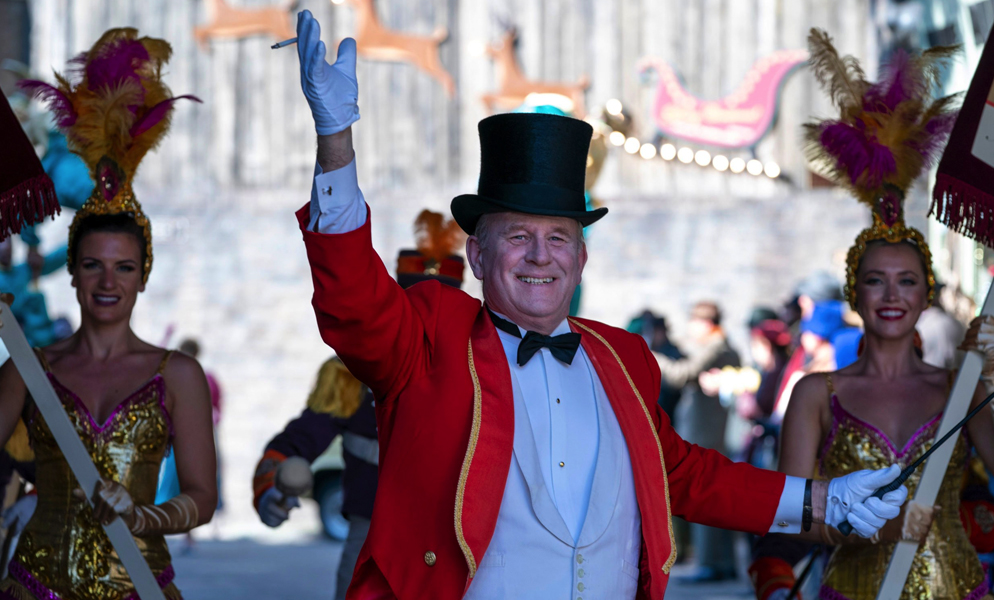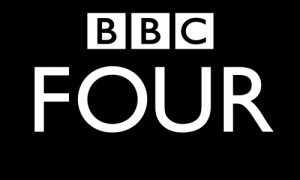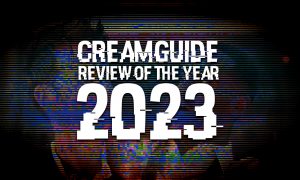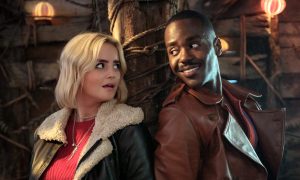“Age rubs one out day after day, like an Indian rubber on a faded pencil sketch”

Christmas Day telly has always had a unique feeling, far away from the familiar fare we see the rest of the year. Sure, various fads and fashions have come and gone over the year, but Christmas Day remains sacrosanct, and the less the programmes have to do with what’s going on in the rest of the world, the better.
On a few occasions, the real world has intervened. In 1974, the Beeb’s Christmas line-up had to be, in the words of that year’s BBC Handbook, “greatly modified for economic reasons”, with financial difficulties caused by raging inflation leading to a preponderance of imports and repeats. In 1978, meanwhile, BBC1’s Christmas schedule only made it on air by the skin of its teeth, an industrial dispute that had blacked out the channel, only being resolved on 22nd December. Its return did mean some respite for viewers in the north of England, though, as a concurrent union issue kept Yorkshire TV off air for the entire festive season, and viewers in that region had to wait until late January to see Morecambe and Wise and James Bond.
And so to 2020. Covid had affected everyone and everything, and broadcasting was no different. Circa mid-April, virtually no entertainment, drama or comedy was being made, Coronation Street was in the middle of the longest break in production in its entire history, and there were more programmes coming from presenters’ houses than most TV studios. Although restrictions were eased later in the year, health and safety procedures meant shows took much longer to make, were generally on a smaller scale and studio audiences were completely out of the question. So what would this mean for Christmas Day, usually home to the biggest shows of the year?
Things looked fairly familiar on BBC1 for the early part of the day. Breakfast was followed by cartoons, including the likes of The Snail and The Whale and The Gruffalo which had put in sterling service on this day in recent years, and the Morning Service – minus a congregation, of course. Then at noon came the annual Christmas Top of the Pops – still with Clara Amfo and Radio 2’s Fearne Cotton hosting, still with the biggest hits of the year, but without a studio audience for the first time since the 1970s. The animated film premiere, Early Man, and the first showing of a new adventure for Zog (star of this year’s BBC1 Christmas ident) meant that, despite some awkward silences, this was pretty much business as usual.
The Queen followed at 3pm, making her third broadcast to the nation this year, after special messages at the height of the pandemic and for the anniversary of VE Day. Despite this apparent over-exposure, enough people were interested in hearing her take on 2020 for the BBC1 audience alone to make it the most watched programme of the day, even before you include those viewing on other channels – the first time Her Majesty had taken the ratings crown since the early ’80s. As usual, the message was followed by some top-drawer Disney in the shape of Coco.
When Covid was devastating TV production in the spring, you’d have got long odds on some of the familiar staples going out as usual, but after a few modifications, the likes of The Great British Bake-Off and I’m A Celebrity…! went ahead, as did Strictly Come Dancing. There were fewer episodes, fewer contestants and far fewer people in the audience – some weeks, none at all – but the show went on pretty much as usual and enjoyed bumper ratings, as well as being heralded as providing some much-needed escapism for some tough times. Unfortunately the extensive safety protocols that allowed the series to take place – with the dancers in protective bubbles and constant testing – meant it was asking a bit too much of everyone to carry on for a Christmas special as well. But Strictly still appeared on the big day with a Christmas countdown of viewers’ favourite dances from the past, a nicely-assembled selection box of archive footage that saw BBC1 into the evening.
Then came the now annual appearance of Michael McIntyre. Unfortunately Covid meant his Big Show, with its large scale stunts and surprises, was on hold at the moment, but in its place came his new game show The Wheel. This had only made its debut on BBC1 at the end of November, so it seemed a bit of a gamble to pencil the Christmas show in such a prominent position. But helped by a cushy post-Strictly slot, it had done good business for BBC1 on Saturday nights, and this festive show got a decent audience as well.
On The Wheel, the game was very much a secondary consideration to McIntyre mucking about with (suitably socially-distanced) celebrities, and this Christmas he was followed by the original comedy quiz where puns and pranks were more important than points and prizes. We’d last seen Blankety Blank on ITV over Christmas in 2016, where host David Walliams said, “We’re calling this a special rather than a pilot, so if it’s a flop we can pretend we only ever meant to make one”. And four years later, here came another “special”, this time with Bradley Walsh as the host battling with his misbehaving panel. Its return to its original channel saw it on Christmas Day for the first time since 1984, and while even Bradley wouldn’t put himself alongside Wogan and Dawson, it did well enough to suggest more might follow.
Two game shows back-to-back probably had less to do with any great clamour for the genre but because they were among the easiest programmes to make under the new restrictions. Drama was a different story and for a while, it looked like the festive Doctor Who might be the only new addition in the entire fortnight, having been filmed alongside the last series 12 months earlier. But as the industry got to grips with the challenges, production resumed and new programmes started to appear, so the Doctor wasn’t required for Christmas Day duty and could appear in its now-familiar New Year’s Day slot. Instead, Call the Midwife was able to appear on the big day as usual, the first major full-length BBC drama to have been completely filmed under Covid restrictions, and seemingly without any impact on its quality. After the Queen, this was the highest-rated show of the day, and for all that it still perhaps seems out of place on the 25th – Gavin & Stacey aside – no BBC programme has rated higher for several years now.
After 9pm came EastEnders, which this year started its, er, second series. Production of the soap was suspended, meaning it had to go off air completely for several weeks in the summer, but it was now back on our screens – although the additional hoops they had to jump through meant it was only appearing in 20-minute episodes. But they managed to offer up nearly a whole hour here, although the days when the Christmas Day visit to Albert Square was one of the most watched shows of the entire year were long past, and it didn’t even manage to get into BBC1’s top five for the day. After that at 10pm was another programme a bit past its best, Mrs Brown’s Boys, again without its usual studio audience. No longer troubling the top of the ratings, it still did decent business as far as BBC1’s comedy output went (which probably says more about BBC1’s comedy than about this show), with a new deal guaranteeing more episodes for many years to come.
Last year the Gavin & Stacey revival pulled in enormous ratings for BBC1. There was another sitcom revival this time, but not quite as spectacular. The Vicar of Dibley had apparently ended for good back in 2007, but Dawn French and Richard Curtis had revived Geraldine earlier in 2020 as part of the Big Night In charity event, delivering an online sermon. It seemed there was still life in the character and so a new series of addresses followed, although their low-key nature – thanks to the limited horizons of current TV production, plus most of the cast having passed away – meant they weren’t as big an event as a fully-fledged revival could have been, and so they were shown in 10-minute chunks on BBC1 during December, and compiled into a single show on the 23rd. But we did still take a visit to Dibley on Christmas Day, the special from 1996 getting a repeat outing to take us up to the news, the epilogue, a Paul McCartney concert and a repeat of the Ab Fab movie (French followed by Saunders) to round off the day.
It certainly wasn’t the most spectacular Christmas Day on BBC1, and the mediocre ratings illustrated that. But given six months earlier it seemed likely we’d have pretty much nothing at all, for the channel to stay all-new for the vast majority of the day and deliver much of the familiar Christmas line-up (albeit in modified form) in the circumstances means it seems pretty churlish to complain that much.
How did ITV get on? As a channel that has always invested far less in its Christmas line-up than the Beeb, it was never likely to be hit as hard, with quizzes and repeats abounding in a normal year, let alone a Covid-hit one. At first glance, a daytime schedule of Good Morning Britain, Lorraine and This Morning seemed to be the ultimate example of ITV giving up – but compared to the second-rate movies and repeats that usually fill Christmas morning on this channel, at least it was new and popular. It wasn’t the first time daytime fare had gone out on the 25th – Anne and Nick did it on BBC1 back in 1992 – and although it was pre-recorded, This Morning probably most resembled Noel Edmonds’ Christmas morning marathons of the 1980s, a compilation of magazine items that was easy to dip in and out of during the cooking and the present opening. And in a year where more viewers than ever would be at home on Christmas Day, Phillip Schofield and Holly Willoughby at least made for friendly, familiar company.
Less inspired was the three hours of cookery shows leading up to The Queen, with James Martin hosting a special edition of his Saturday morning programme and Ainsley Harriott serving up festive food. After the boss came the umpteenth Christmas edition of You’ve Been Framed, and then, like on the BBC, a double bill of quizzes. No Tipping Point this year, its afternoon stablemate Tenable appearing alongside The Chase – meaning Bradley Walsh hosted quizzes on both BBC1 and ITV. Though as celebrity editions of The Chase appeared most weekends of the year, there was nothing about this one that demanded it to be watched (especially as it would be repeated dozens of times), but it did provide comedian Josie Long with a surprising appearance on Christmas Day ITV.
Unlike EastEnders, Emmerdale and Coronation Street managed to stay on air all year, thanks to strict rationing of the material they had on the shelf (hence Weatherfield celebrating the anniversary of VE Day in mid-July) and a swift rush back into production which meant overnight everyone’s hair had grown and they were all suddenly standing much further apart. Both were now back at full strength and both produced their familiar hour-long episodes.
Then at 8pm came something a bit special – a Christmas edition of Britain’s Got Talent. This promised some of the favourite stars from the entire history of ITV’s hugely popular Saturday night staple, as well as the judges showing off their talents for the first time, but it didn’t do very much at all ratings-wise. It seems like, much as Dancing On Ice found out when it appeared on the 25th at the height of its powers in 2008, nobody’s very interested in seeing the competitors when they’re not competing, and whereas Strictly at least benefits from the bandwagon still rolling just a few days after its final, Britain’s Got Talent had finished ages ago so it all felt like yesterday’s news.
After that came It’s Clarkson On TV, a new programme where the titular host reviewed strange TV from around the world, as Clive James and Chris Tarrant had for many years, which, much like Blankety Blank earlier, smelled very much like a pilot. After that came a repeat of It’ll Be Alright On The Night, first shown the previous Saturday. Time was that these programmes would be much anticipated, such was their scarcity, but this was the third new episode in a month, so was clearly fishing around in a much shallower pool. That said, Denis Norden didn’t have This Morning generating two hours of innuendos every day. A stack of repeats rounded off a sturdy but unexceptional Christmas Day, and meant ITV filled 24 hours without a single feature film.
It would be hard to suggest the modest ratings for much of Christmas Day’s output suggests the audience are crying out for something new when Call the Midwife’s figures actually went up, The top three on ITV were Coronation Street, Emmerdale and The Chase, and the most-watched show on Channel 4, for the umpteenth year, was Home Alone 2.
C4 served up most of their familiar fare this year, including a Gogglebox retrospective and a stack of family films. No Bake Off, though, that was on Christmas Eve, with lockdown favourite Escape to the Chateau instead, and no Alan Carr, but he did appear on The Wheel on BBC1. Headline grabber of the day was the Alternative Christmas Message, delivered by… The Queen. But this was a deepfake of the monarch, giving a message actually voice by impressionist Debra Stephenson, aiming to illustrate the dangers of fake news.
BBC2 gave us most of what we expect too – Dad’s Army and Morecambe and Wise were there, the latter represented by their 1975 Christmas show featuring the much-missed Des O’Connor. More classic comedy came from Victoria Wood, with a rare repeat of her All Day Breakfast from 1992 and a new documentary based around a recently discovered list of her personal favourite sketches. More traditional BBC2 festive programming was represented by Matthew Bourne’s award-winning production of The Red Shoes, although it was BBC4 that, as usual, provided the most Reithian Christmas with a special gala performance to mark the first show at the Royal Opera House since lockdown, and a prestige documentary on Maria Callas. Channel 5, meanwhile, offered up classic films and not-so-classic clip shows, as always.
So despite all the upheaval and uncertainty of the past 12 months, we ended up with a pretty familiar-looking day. Yes, there were obviously threadbare parts of the schedule, but in many ways it’s remarkable we got as much new programming as we did – testament to the importance still placed on Christmas Day TV.






















GeorgeRTG
December 27, 2020 at 8:18 pm
Even though large parts of the BBC One Christmas Schedule feel quite stale to me, I do agree that it’s hard to see anything replacing what’s there any time soon because there is nothing outperforming expectations in a lesser slot somewhere else in the festive season, like Mrs Brown’s Boys did back in 2012, that deserves obvious promotion to the big day. Stuff like Ghosts or The Repair Shop, which could fit in quite nicely on Christmas Day aren’t getting audiences any bigger than what is on Christmas Day now so there’s no real reason to put them there other than change for change’s sake.
Gavin and Stacey last year showed that a big audience will tune in for Event Television but it’s hard to think of anything else that could pull in the same kind of big audience unless they started the second series of Bodyguard or a major David Attenborough series (Frozen Planet II?) on Christmas Day.
THX 1139
December 27, 2020 at 9:29 pm
I watched Blankety Blank, which was fine, easy to watch and genial. I saw a review complaining it was too smutty for Christmas, obviously written by someone who doesn’t have vivid memories of the Wogan and Dawson years, which were wall to wall filth.
I also watched Quentin Blake’s Clown, which you didn’t mention and I think was a rare new show on C4. It was nice enough, Blake’s drawings are always a pleasure, but it’ll never replace The Snowman.
It’s been amazing we’ve had any new TV at all, so I admire and welcome the effort. I’ll be interested to see the catch-up service figures.
Glenn Aylett
December 28, 2020 at 11:41 am
Channel 5 for me during most of daytime and their five hours of festive music and Oliver! must have tempted people away from the dull line ups on the two main channels. Also the comedy classics on BBC Two later on kept me entertained and it was interesting to see the recently deceased Diana Rigg and Des O Connor on the Morecambe and Wise Show. In fact all I watched on BBC One was Strictly, and avoided ITV all day. ( Who seriously wants to watch half forgotten Britain’s Got Talent contestants and the same ancient clips on You’ve Been Framed?).